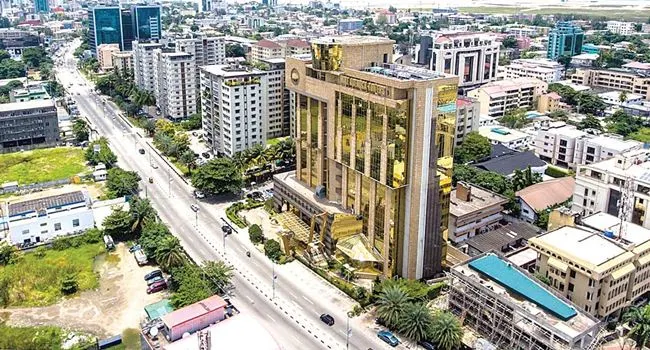How Much Does it Cost to Register a Property With NIPC?
The NIPC is responsible for promoting, coordinating, and monitoring investments in Nigeria, ensuring that foreign and local investors comply with the country’s laws.
For businesses, especially foreign investors, registering a property with NIPC can provide legal protection, tax benefits, and investment security.
However, one of the most common concerns is the cost of registering a property with NIPC.
In this blog post, we will break down the costs involved, factors affecting registration fees, and how to minimize expenses while ensuring compliance.
What Is NIPC Property Registration?
NIPC property registration refers to the process of officially recording real estate investments with the Nigerian Investment Promotion Commission.
This registration is crucial for foreign investors and companies looking to own property in Nigeria, as it provides legal backing and investment incentives.
Who Needs to Register Their Property with NIPC?
- Foreign investors and businesses acquiring real estate in Nigeria.
- Companies registered under the Nigerian Investment Promotion Act.
- Businesses seeking investment incentives, such as tax holidays.
- Property developers engaging in large-scale real estate projects.
Benefits of Registering a Property with NIPC
- Legal Protection: Ensures compliance with Nigerian laws and safeguards against disputes.
- Investment Incentives: Access to government incentives such as tax breaks.
- Ease of Business Operations: Simplifies property transactions and ownership verification.
- International Recognition: Provides credibility for foreign investors looking to expand in Nigeria.
See This: How Much Does it Cost to Process a Mortgage in Nigeria?
Costs Involved in Registering a Property with NIPC
The total cost of registering a property with NIPC depends on several factors, including property value, location, and additional service fees. Below is a breakdown of the expenses involved:
1. Application Fees
NIPC charges a registration fee for processing property registration applications. While fees may vary, investors should budget between ₦50,000 – ₦200,000, depending on the nature of the investment and the type of property being registered.
2. Legal and Professional Fees
Engaging a lawyer or consultant is essential to ensure smooth registration.
Legal fees typically range from ₦100,000 – ₦500,000, depending on the law firm’s reputation, the complexity of the registration, and additional legal documentation required.
3. Stamp Duty and Taxes
Nigeria imposes stamp duty on legal documents, including property transactions. Stamp duty is calculated as a percentage of the property’s value, usually ranging between 1% – 3%. For example, a property valued at ₦50 million could attract a stamp duty fee of ₦500,000 – ₦1.5 million.
4. Survey and Valuation Fees
Surveying and valuing a property are crucial steps in the registration process. Survey fees typically range from ₦100,000 – ₦500,000, while valuation costs can be between ₦200,000 – ₦1 million, depending on property size and location.
5. Additional Fees and Hidden Costs
Beyond official fees, investors should prepare for miscellaneous expenses, such as:
- Administrative charges (₦50,000 – ₦200,000)
- Processing fees for document authentication (₦20,000 – ₦100,000)
- Courier services for document delivery (₦5,000 – ₦20,000)
Factors Affecting the Cost of Registration
Several elements influence the overall cost of registering a property with NIPC. These include:
1. Property Location
- Properties in major cities like Lagos, Abuja, and Port Harcourt tend to have higher registration costs due to increased property values and administrative expenses.
- Rural areas often have lower fees but may require additional documentation.
2. Type and Value of the Property
- Commercial properties attract higher fees than residential ones.
- High-value properties require higher stamp duties and valuation costs.
3. NIPC-Specific Requirements for Foreign Investors
- Foreign investors may need to fulfil additional documentation and pay extra fees for compliance with investment regulations.
- Some transactions may require additional government approvals, increasing overall costs.
Step-by-Step Guide to Registering a Property with NIPC
Step 1: Submit an Application
Investors must submit an application to NIPC, detailing property information, investment purpose, and business structure.
Step 2: Provide Required Documents
Commonly required documents include:
- Proof of company registration (for corporate investors)
- Tax Identification Number (TIN)
- Deed of Assignment or Lease Agreement
- Property Valuation Report
- Survey Plan
Step 3: Pay Applicable Fees
Investors must pay stamp duties, legal fees, and registration charges before proceeding.
Step 4: Await Verification and Approval
NIPC reviews the application, conducts due diligence, and may request additional documentation before approval.
Step 5: Receive Registration Certificate
Once approved, investors receive an NIPC registration certificate, confirming legal property ownership.
How to Reduce Costs and Avoid Delays
1. Plan Your Budget in Advance
Understanding all potential costs upfront helps investors avoid financial surprises and ensures smooth registration.
2. Work with Experienced Professionals
Hiring a knowledgeable real estate lawyer or consultant reduces errors and speeds up the process, potentially saving money.
3. Verify All Documents Before Submission
Incorrect or incomplete documentation can lead to delays and additional costs. Double-check all paperwork before submission.
4. Stay Updated on NIPC Fee Changes
Government fees are subject to change, so investors should regularly check NIPC’s website or consult experts for the latest updates.
5. Consider Negotiating Legal and Professional Fees
Legal and consultancy fees are not fixed, so investors can negotiate charges with service providers.
See This: Cost of Real Estate Investment Training in Nigeria
Conclusion
Registering a property with the Nigerian Investment Promotion Commission (NIPC) is a crucial step for foreign and corporate investors looking to operate legally in Nigeria.
While the process involves multiple costs, including application fees, legal expenses, stamp duties, and valuation fees, understanding these expenses helps investors budget effectively and avoid unnecessary delays.
For investors seeking smooth registration, hiring an experienced lawyer, staying informed on NIPC regulations, and ensuring proper documentation are key to reducing costs and ensuring compliance.
If you need expert guidance on registering a property with NIPC, consult a legal professional or visit the official NIPC website for up-to-date information on fees and requirements.

